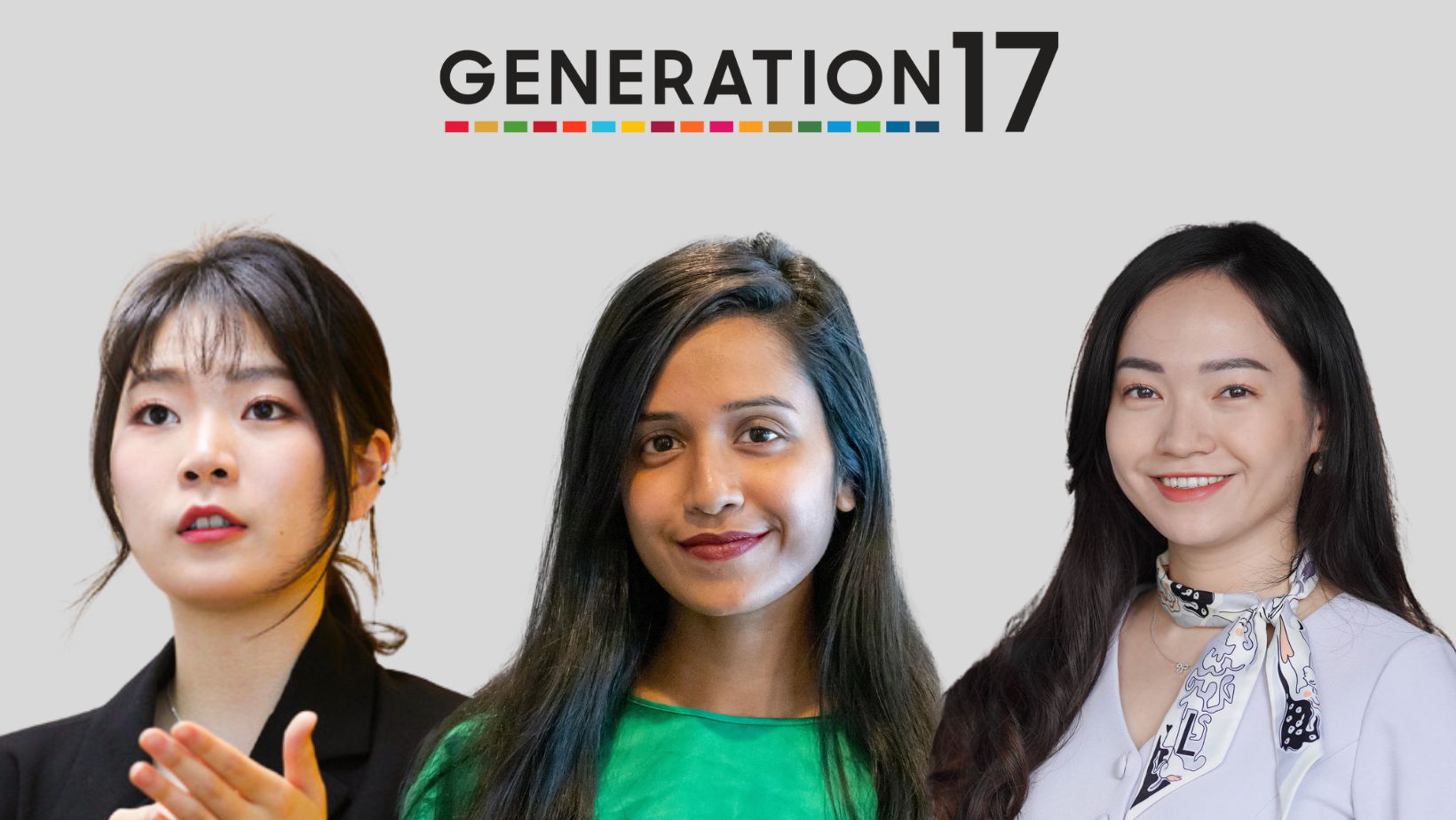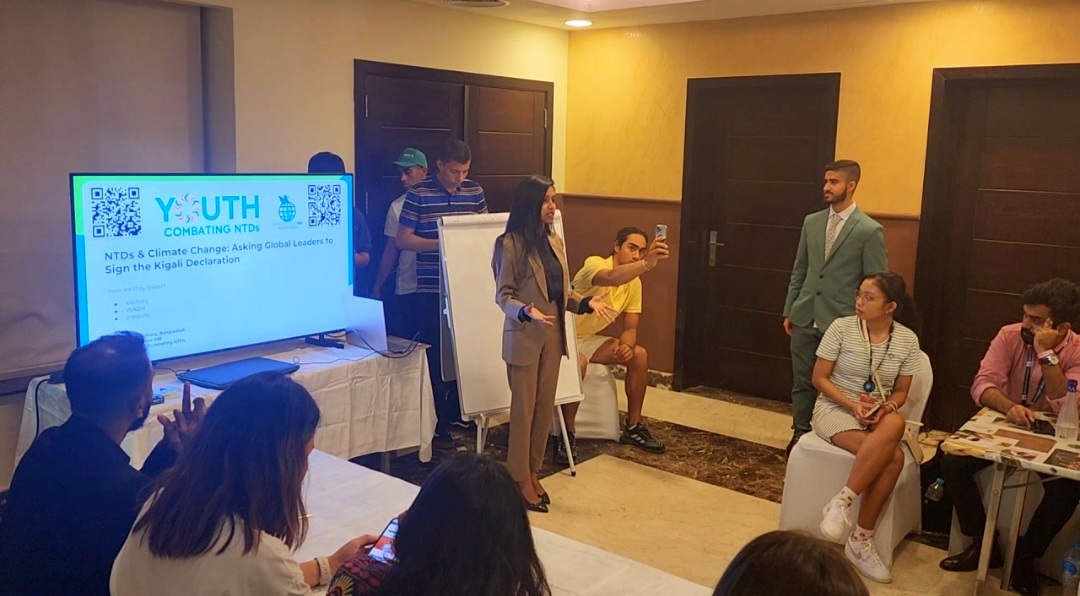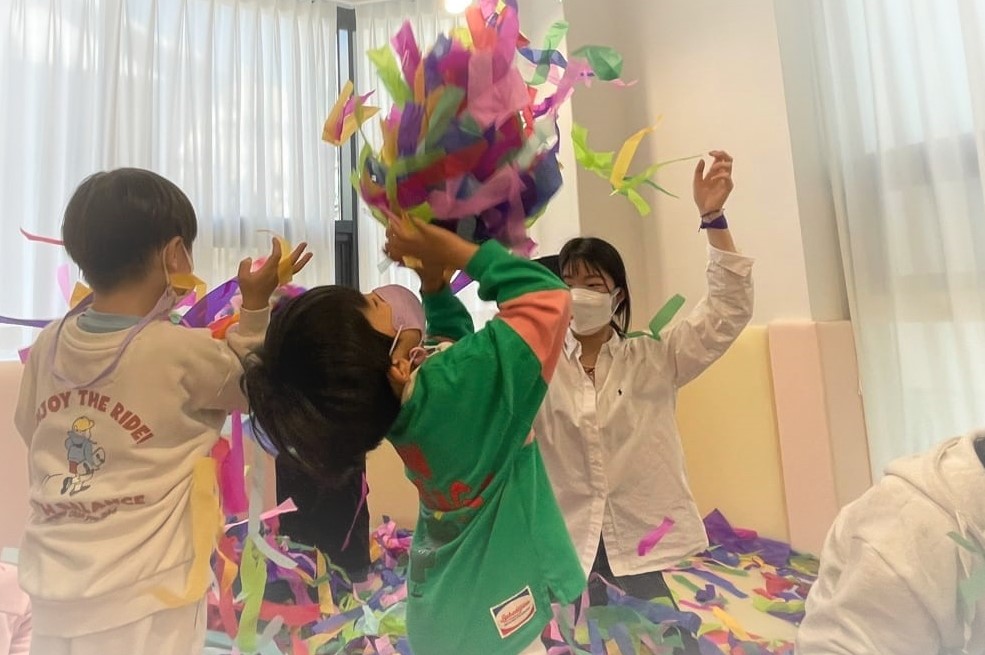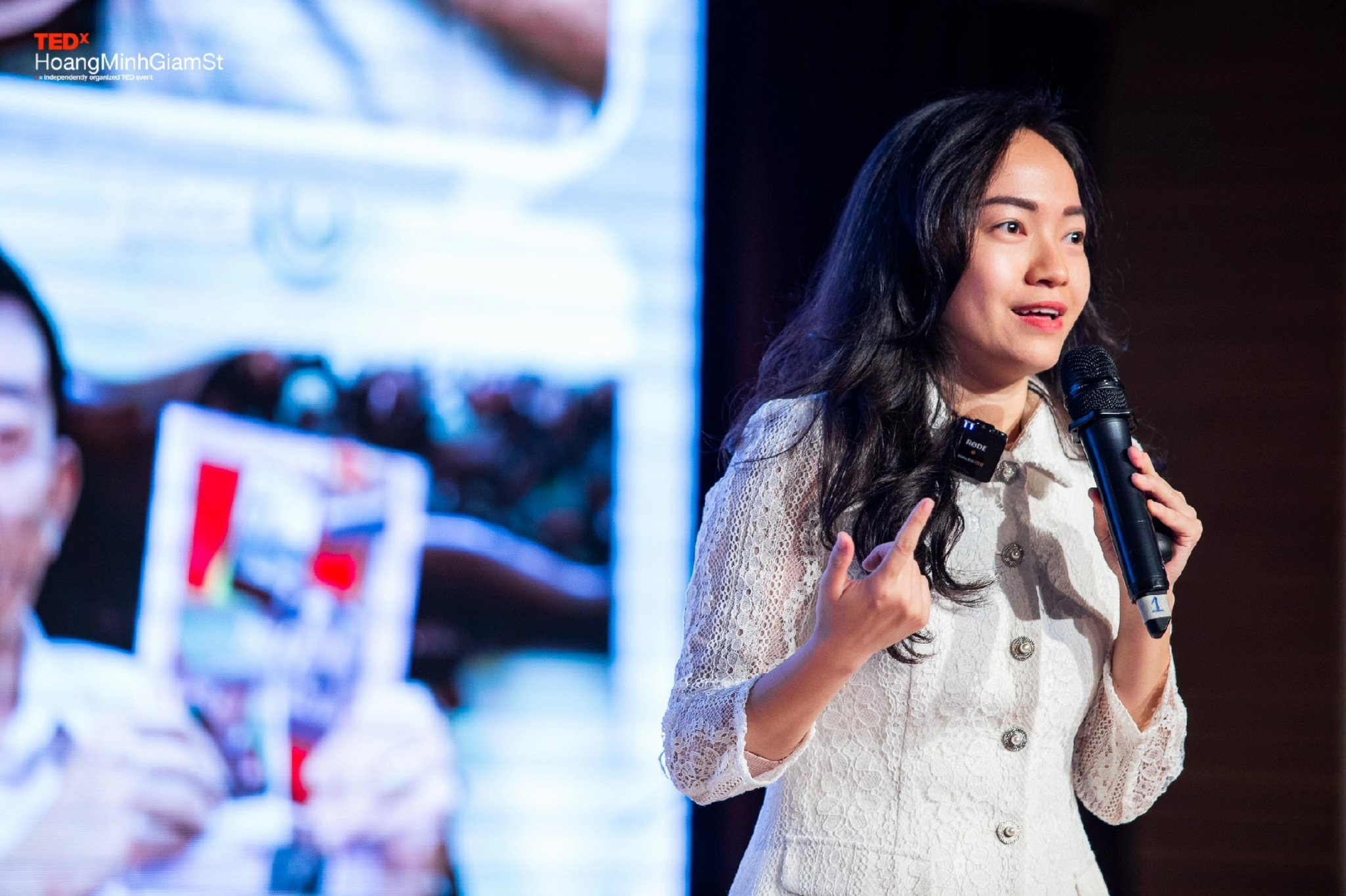Innovation and technology enabling gender equality
March 7, 2023

We’re living in the era of the digital revolution. Technology has changed our lives, including the way we access education. But we need to be careful to not continue existing patterns of gender inequality. Innovation and technology can support our work for gender equality and the empowerment of all women and girls for sustainable development. Transformative technology means inclusivity in education but also in other spaces where women still are underrepresented. On this International Women’s Day, we want to highlight the importance of technology as a tool to reduce the gender gap. In 2020, UNDP together with Samsung launched the initiative called, Generation17. Today, 14 young leaders from different parts of the world have benefited from this digital partnership, so we invited three young female leaders from Bangladesh, Viet Nam and South Korea to share their thoughts and reflections. These young leaders have experienced the perks of having technology as an ally, because technology is helping them as women entrepreneurs and increasing their impact on other young women.

Technology to connect and empower women.
Shomy, co-founder of Awareness 360, Bangladesh
I am genuinely proud of my organization, Awareness 360, because we mainstream gender equality in all our decisions, levels, and operations. Currently, 67 percent of our staff are women, who represent diverse nations and hold various leadership roles within our functional teams. We ensure there is a gender balance among speakers whenever we host a panel discussion or event (excluding the moderator). We maintain zero tolerance for any form of abuse ensuring the safety and well-being of all our members, especially women, both in physical and virtual space. We also provide period leave for the staff who menstruate. We make the utmost effort to promote women's rights throughout the year by paying attention to these little details.
Given Awareness 360 is an international organization; we heavily leverage technology to engage with women from all around the world and equip them with transferable skills and resources that will enable them to be meaningfully empowered both within and outside of Awareness 360. The bulk of the participants in our yearly youth development programme are women. Not only do we provide opportunities to women from around the globe, but also from conflict-ridden countries. Our recent Fellow of the Year is a woman from Yemen, who will be rewarded with a fully funded international trip from Awareness 360, as recognition for her incredibly impactful work in her community. Last week we heard from a young woman in Afghanistan, who is fighting for girls’ education in her country, and shared how motivated she feels by engaging with inspiring young people through our global platform and how she is gaining tangible skills to apply in her work through the Awareness 360 Fellowship Programme.
Without access to technology, connecting this powerful group of women and empowering them to be civil society leaders would not have been possible.

Using technology to position young women in their fields.
Yejin, founder of DoBrain, South Korea
Technology empowers me. Technology can increase my capacity to solve problems and reach more people who need our solutions.
Many children with learning disabilities around the world do not have access to diagnosis and specialized education methods. Low-income communities and families are the most affected. Through DoBrain, my AI-based learning platform, I offer affordable school-readiness solutions for children, including those with learning disabilities. I use technology to generate inclusivity, as in DoBrain we’re able to digitally screen children's development and help them get the help that can cost over US$100 an hour, through an application that they can use at home.

Technology can also be a powerful tool to bridge generational gaps.
Thuy, founder of HASU, Viet Nam
As a young woman entrepreneur who has been working on technology capacity building for the older adults and providing them memoir writing services, technology has been a game-changer for my business. It has made it easier for me to collaborate with clients. Instead of having to meet in person, I can conduct interviews over video chat or phone or collaborate with them through online activities. This is especially beneficial for elderly clients who may not be able to leave their homes or who have mobility issues.
In addition, technology has given me access to various tools and resources that make my job easier. For example, there are software programmes that can transcribe audio recordings, saving me time and allowing me to focus on the creative aspects of the writing process.
Finally, technology has helped me provide emotional support to my clients. With the pandemic forcing many of us to work remotely, I have had to find new ways to connect with clients and offer emotional support. Through video calls and messaging apps, I have been able to stay connected with my clients and provide them with the support they need during this difficult time.
Technology has the power to bridge the gap between generations, unlocking a world of information, communication, and connection for elderly people that was once unimaginable.
--
Today, we’re still working on reducing the gender gap, particularly in technology when it comes to access to it. As the Generation17 young leaders have mentioned along this blog, technology is critical to keep increasing their impact as social entrepreneurs but also to generate inclusivity to leave no women behind and achieve the 2030 Agenda.
Generation17 supports a group of inspiring young leaders aged 18 to 32 dedicated to innovating for humanity and mobilizing global communities. To learn more about this initiative and meet the Generation17 young leaders, the visionaries, advocates and entrepreneurs building a better future, visit generation17.undp.org.

 Locations
Locations



